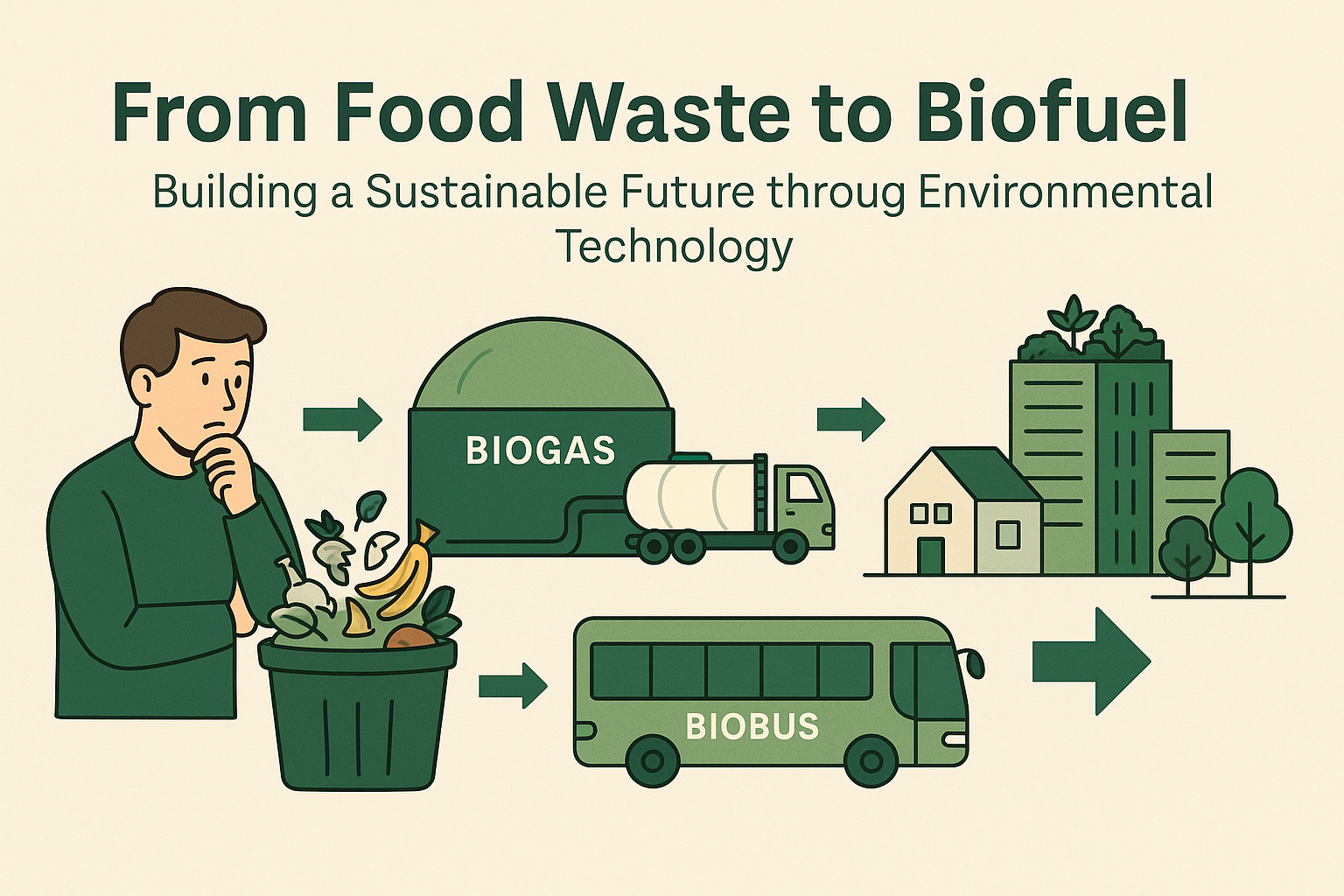- Courses “From Food Waste to Biofuel” Building a Sustainable Future through Environmental Technology
- Course Session All-Time

KEITI
(KOR)

Green-da Corp
(KOR)
-
Instructor
김민주(교수자)
-
Total number of Lectures
2Section
-
Course hours
hours
-
Course Session
All-Time
-
Enrolment Methods
Auto Approval
-
Tuition Fees
Tuition-free
“From Food Waste to Biofuel” Building a Sustainable Future through Environmental Technology

-
Instructor
김민주(교수자)
-
Total number of Lectures
2Section
-
Course Session
All-Time
-
Enrolment Methods
Auto Approval
-
Tuition Fees
Tuition-free
“From Food Waste to Biofuel”
— Building a Sustainable Future through Environmental Technology —
1. Overview
This educational program aims to enhance understanding of the importance of food waste reduction and resource circulation, while introducing advanced environmental technologies and global cooperation efforts that contribute to building a sustainable future society.
2. Background
Every year, nearly 20% of the world’s food production is wasted, generating methane gas—a greenhouse gas 28 times more potent than carbon dioxide—which accelerates climate change and resource depletion.
In response, APEC (Asia-Pacific Economic Cooperation) member economies have set a collective goal to halve food waste by 2030, promoting diverse policies and technological innovations to achieve this vision.
3. Key Contents
Centered on the message that “even discarded food can be reborn as energy,” this program covers the following topics:
-
The global impact and urgency of food waste issues
-
Smart agriculture, IoT, and AI technologies that minimize food loss
-
Case studies on biogas and biofuel technologies for resource recovery
-
International cooperation toward sustainable and eco-friendly cities
Through these topics, participants will gain a comprehensive understanding of how technological innovation and green energy transition are interconnected in solving environmental challenges.
4. Expected Outcomes
-
Raising Environmental Awareness: Foster greater recognition of the impact of everyday food waste
-
Expanding Technological Insight: Learn about real-world examples of technology-driven environmental solutions
-
Encouraging Sustainable Action: Inspire individuals and organizations to participate in resource circulation practices
5. Educational Message
“Even food waste can come back to life through technology.
Together with environmental innovation, let’s create a sustainable future.”
Atmosphere environmental regulation (9 Section, SuperAdmin)
